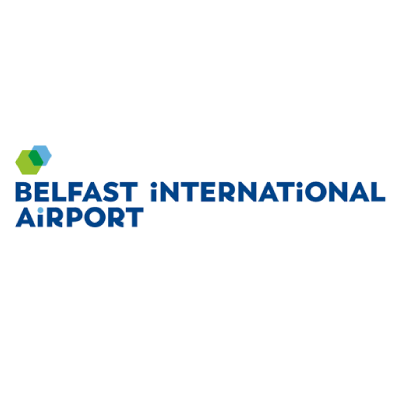Airport data management is the process of collecting, storing, and analyzing data related to airport operations, passengers, and flights. We all know that managing your data privacy, security and sharing is important, so in this article, we’ll discuss each of these elements in detail.
Privacy in Airport Data Management
Personal data collection and storage are crucial aspects of airport data management. As much as it is necessary to collect personal data for a variety of purposes, including security, immigration, and baggage handling; It is equally important to safeguard this information against unauthorized access and misuse.
This is a big topic for travellers too – they are more aware than ever of the threats surrounding misuse of digital data, with 56% of digital consumers actively showing an interest in cyber-resilience.
Data types
The types of personal data collected by airports include passenger names, addresses, and passport details. This information is often required for security screenings and immigration purposes and passengers are aware and accepting of this. In addition to personal data, airports may also collect data on passengers’ travel itineraries, flight details, and luggage information.
This kind of information is used to create more personalized and active passenger experiences. This is not only expected by passengers these days, but also incredibly useful to your airport in building a compressive picture of airport operations and passenger patterns.
How airports store data and keep it secure
The methods of personal data storage used in airport data management vary. While some airports still use physical paper-based systems to store personal data, most use electronic databases or are on a journey of digitzation. The electronic storage of personal data has become increasingly popular due to its convenience and accessibility. However, electronic storage also presents a greater risk of data breaches and a loss of confidential information.
To mitigate these risks, privacy regulations in airport data management are necessary. International regulations, such as the General Data Protection Regulation (GDPR) in Europe, and local regulations, such as the Personal Information Protection Act (PIPA) in Canada, help to safeguard personal data. These regulations establish rules for the collection, storage, use, and disclosure of personal data, and set penalties for non-compliance.
Privacy breaches in airport data management can have grave consequences for the individuals (data subjects) and airport operators (data controllers) alike. Personal data can be used for identity theft or other criminal activities, which can cause significant harm to the affected individuals. Additionally, privacy breaches can result in reputational damage to airports and airlines, which can be difficult to repair and affects customer loyalty and trust. For this reason, it is essential that airports act appropriately to safeguard personal data privacy.
Privacy by default and design
Rezcomm is committed to ensuring the highest levels of data security with a privacy-first approach. While compliant with the data protection regulations in each country our software operates in, we are also compliant with the General Data Protection Regulation (GDPR), an EU law providing strict guidelines for data privacy and security, we also use robust access control mechanisms to regulate who can access the data, ensuring that all information remains confidential and is used solely for the intended purposes.
Security in Airport Data Management
As technology and airport operations become increasingly digitized, cybersecurity risks are a growing concern in airport data management. Cybersecurity risks can take many forms, including phishing attacks, malware, and data breaches. These can compromise personal data, disrupt airport operations, and cause significant financial harm. In 2022, 38 successful DDoS (Distributed Denial of Service) cyber-attacks took place in the aviation industry alone.
Addressing cyber- and physical security issues
Mitigating cybersecurity risks requires a comprehensive approach. One key step is to implement robust security measures such as encryption and multi-factor authentication. Encryption involves using complex algorithms to scramble data so that it cannot be read by unauthorized parties. Multi-factor authentication requires users to provide multiple forms of identification before accessing sensitive data, which can help prevent unauthorized access.
In addition to cyber threats, physical security risks are also a concern. Physical security risks can include theft, sabotage, and terrorism. These can be mitigated by ensuring adequate physical security measures such as CCTV, access controls, and security personnel. CCTV cameras can monitor areas of the airport for suspicious activity, while access controls can limit access to sensitive areas. Security personnel can provide an added layer of protection against potential threats.
It is important to note that cybersecurity and physical security are closely interconnected. A breach in one area can lead to vulnerabilities in the other. For example, a cyber-attack that compromises access controls could allow unauthorized individuals to enter sensitive areas of the airport. Similarly, a physical security breach could provide attackers with access to airport systems and data.
By addressing both cyber and physical security risks, airports can protect the privacy and security of their passengers while maintaining the integrity of their operations.
Choose ‘secure by design’
Rezcomm employs a multi-layered security approach to ensure that data is well protected from breaches and unauthorized access with firewalls and intrusion detection systems. Data encryption and secure access controls ensuring only authorised personnel can access sensitive data, along with regular security audits and training, meaning you can rest assured we proactively maintain the highest security.
Sharing in Airport Data Management
Sharing airport data can be highly beneficial for both passengers and airport operators and their retailers, but there is a fine line between what is considered acceptable and in the interest of the passenger and what breaches their privacy. Typical types of data that can be shared include passenger data, such as travel itineraries and baggage information, and flight data, such as arrival and departure times. Sharing this data can help improve airport operations, enhance passenger experience and provide new revenue opportunities.
Benefits of data sharing
One of the primary benefits of sharing airport data is improved passenger safety and convenience. For example, sharing passenger data can help airlines identify and address any special needs or preferences that passengers may have. This can help ensure a more comfortable and convenient travel experience for passengers. Additionally, sharing flight data can help passengers stay informed about delays or cancellations, allowing them to make alternate travel arrangements if necessary.
Sharing airport data can also be beneficial for business needs. For example, airlines may use data on passenger travel patterns to optimize flight schedules and routes. This can help reduce costs and improve efficiency, ultimately benefiting both airports and passengers.
Ethical considerations
It is important to consider ethical considerations in sharing airport data. Ensuring transparency and obtaining consent from passengers is essential to protect their privacy and ensure that they are fully informed about how their data is being used. For example, passengers should be informed about how their data will be used, who will have access to it, and how long it will be retained.
The responsible sharing of data can lead to improved airport operations and enhanced passenger experiences. For example, sharing data on airport wait times can help passengers plan their travel more effectively while sharing data on baggage handling can help improve baggage handling processes and reduce the incidences of lost or delayed baggage.
If you ever need clarity or guidance, there’s a number of different agencies around the world that can provide resources that can help. Here are a few:
- Information Commissioner’s Office
- Data Protection Commission
- European Data Protection Board
- European Data Protection Supervisor
- Federal Trade Commission
- USA Gov
- Office of the Australian Information Commissioner
Go for consent-driven systems & data sharing minimization
When data is shared between Rezcomm and its partner airports, several measures are put in place to ensure its safe transfer such as data encryption and implement secure data transfer protocols such as Secure File Transfer Protocol (SFTP) or HTTPS. We also follow the principle of data minimization, which means only the necessary data required for a specific purpose is shared, reducing the risk of exposure of unnecessary data during the transfer.
Using access control, regular audits and automatic data cleansing, Rezcomm ensures our processes remain secure, minimised and comply with all relevant regulations and standards.
Be safe with Rezcomm
Privacy, security, and sharing are all essential components of your airport data management system. Personal data collection and storage require robust privacy regulations to protect against unauthorized access and misuse. Sharing airport data can improve passenger experiences and enhance business operations but must be done in an ethical and transparent manner.
As airport data management continues to evolve, it will be important to remain vigilant in these areas to ensure the protection of personal data and the security of airport operations. Future implications of airport data management may include increased use of artificial intelligence (AI) and machine learning (ML) to analyze data and improve airport processes. As the use of advanced technology continues to grow in the aviation industry, it will be essential to balance the benefits with the need to protect privacy and ensure security.
If you want to know more about Rezcomm, please download our brochure or book a meeting with one of our expert team.






























